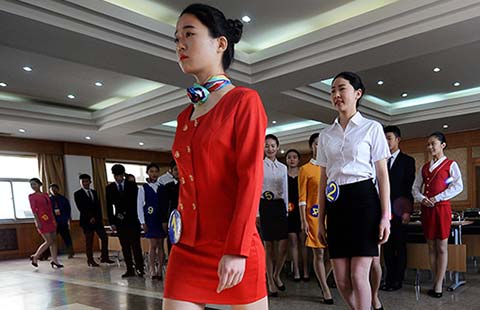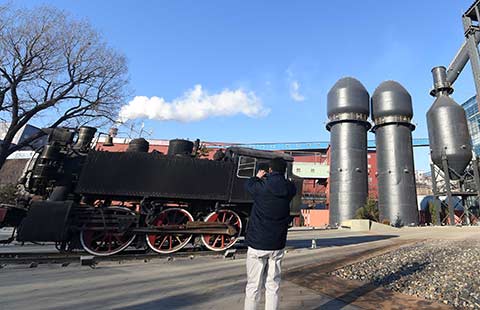China's employment situation 'generally stable'
(Xinhua) Updated: 2012-09-10 13:08BEIJING - Employment in China has remained "generally stable" despite a slowdown in economic growth, a human resources official said Monday.
Employment at enterprises has been maintained at the same level as last year, and there have not yet been any large-scale layoffs or migrant workers returning home, said Xin Changxing, vice minister of human resources and social security.
The number of migrant workers returning home increased in June and July from the same period last year, but it was not a significant rise, he said.
The conclusion was drawn from the results of surveys conducted among more than 680 enterprises and 464 villages in 20 provinces in early August, according to Xin.
A total of 9.18 million new jobs were created in the first eight months of this year, he added.
However, Xin said the economic slowdown is starting to have an impact on employment, and the growth of newly-created jobs has been decelerating since April, especially in the country's eastern regions.
Meanwhile, central and western China have witnessed higher year-on-year growth in the January to August period, he added.
Also, the number of new jobs created in the service and high-tech sectors has grown faster than in the first eight months of 2011, while that of the manufacturing sector grew slower, said Xin, citing figures from monitoring activities conducted on the employment conditions of more than 11,000 enterprises.
Xin pledged to further boost employment by creating more new jobs, especially for college graduates, and offering employment information and training to migrant workers.
The registered urban unemployment rate in China held steady at under 4.3 percent from 2003 and 2011. By the end of June, the rate stood at 4.1 percent, remaining unchanged for the eighth consecutive quarter and resting below the government's 4.6-percent annual target set for this year.
The country created 98 millon jobs from 2003 to 2011, with 760 million people registered as employed at the end of 2011, according to the ministry.
China's economy grew by 7.6 percent in the second quarter of this year, marking the slowest pace of expansion in three years due to sluggish external and domestic demand as well as the country's efforts to cool the property market.
- China sets timetable for rural power grid upgrades
- China's economic transition ultimately benefits global economy: US Treasury official
- Nippon Paint's new electro deposition coating promotes green automobile production technology
- China to eliminate outdated coal production capacity by 60m tons in 2016
- China opens more inbound duty free shops
- China's business system reform boosts entrepreneurship, employment: official
- Alibaba Health plunges on govt decision
- Brent crude price drop takes toll on Yanchang Petroleum
















